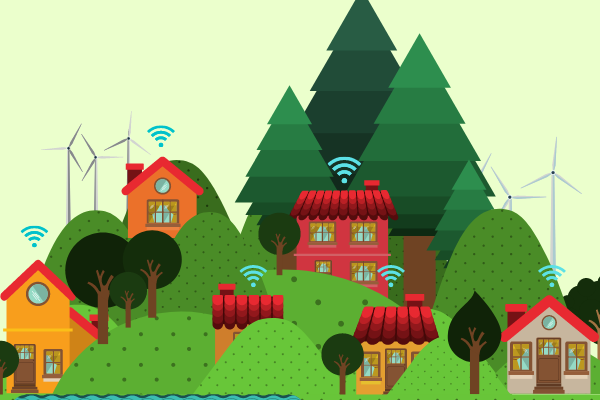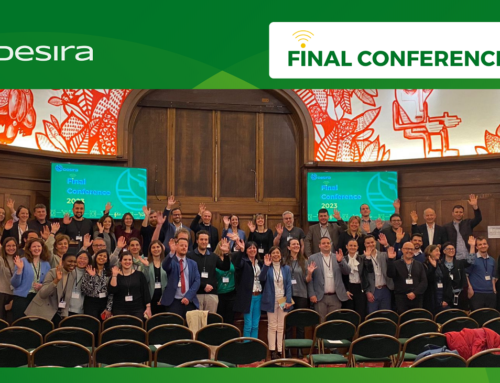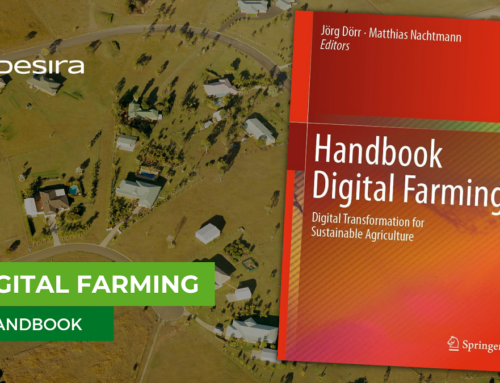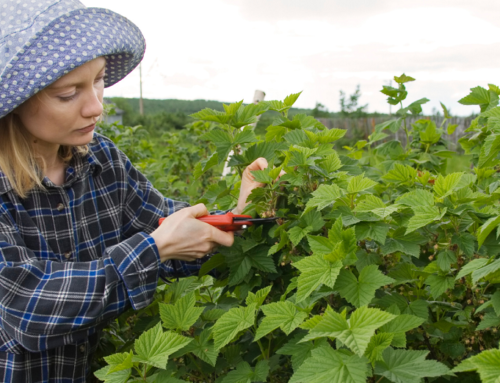Author(s): María Alonso, Mar Delgado (University of Córdoba)
The Spanish cooperative bank Cajamar publishes ‘Mediterráneo Económico’ biannually, a monograph study where different experts are invited to share their views about a given topic. The last publication was presented on 24th March 2022 by the Spanish Minister of Agriculture, Fisheries and Food, Luis Planas, and introduces the future challenges and opportunities of the Spanish rural areas.
Mar Delgado, professor at University of Córdoba and rural policy expert, has contributed with a chapter analysing different aspects of the digitalisation in Spanish rural areas and how to move towards an inclusive digital transition. A summary of the chapter is presented next.
Digital transition is strategic for rural areas, as it could contribute positively to deal with some of their key challenges, like depopulation. This transition presents its own challenges and threats, and we should understand the associated socioeconomic impacts. Spain has developed a comprehensive rural digitalisation strategy and presents a digital readiness above the EU average according to DESI 2021. However, the digital urban-rural gap persists, as well as a gender and age gaps which can hinder a successful transition.
A variety of technologies and applications have got the potential to influence the future of rural areas, namely social networks, mobile applications, autonomous systems, and robots, etc. DESIRA has analysed the expected social, economic, and environmental impacts of such technologies, drawing the following conclusions.
Without a doubt, technologies can improve the productivity of farms (reducing harvesting costs, for example) and they can expand the business opportunities. However, some technologies remain inaccessible for small-scale farmers and their replicability and scalability is not always possible (e.g. mechanised harvest in mountainous areas).
Socially, technologies could fill in the gap for insufficient workforce associated to some tasks, like fruit handpicking, while attracting more qualified staff related to the digital transition. On the other hand, technologies could promote increasing the unemployment in rural areas and the digital gap could be widened if the local communities do not improve their digital skills. Another key issue are power relations, for they could be detrimental to the rural areas if technological improvements are managed from the cities. Digitalisation could also increase the gender gap, since the number of women working in STEM (Science-Technology-Engineering-Mathematics) and computing is rather limited.
Regarding the environmental dimension, the digital transition contributes to a better use of the resources. However, implementation of innovations often goes hand in hand with farm intensification and farm size increase, which might result in biodiversity loss.
Aside from these expected impacts, other aspects of digitalisation should be considered. Policies should be put in place to guarantee cybersecurity and citizens rights. The farm sector currently generates and uses significant amount of data, therefore establishing mechanisms to make them accessible and interoperable are key. Finally, data property rights and clear data use regulations should be made accessible.
To reach an inclusive rural digitalisation, we propose the following guiding principles from DESIRA project:
1) Create the basic conditions for digitalisation, including the improvement of digital skills.
2) Link digitalisation to sustainable development and the SDGs.
3) Contextualise digitalisation through stakeholder engagement.
4) Favour digital inclusion of all citizens, avoiding marginalisation.
5) Develop digital ecosystems linking local needs and knowledge.
6) Develop adaptive governance models, from reactive to proactive, based on multi-actor platforms.
7) Design policy instruments for sustainable digitisation that support local communities in developing and implementing digitisation action plans.
Full chapter available here (in Spanish): https://publicacionescajamar.es/publicacionescajamar/public/pdf/publicaciones-periodicas/mediterraneo-economico/35/me-35-hacia-una-digitalizacion-inclusiva-de-las-areas-rurales.pdf






